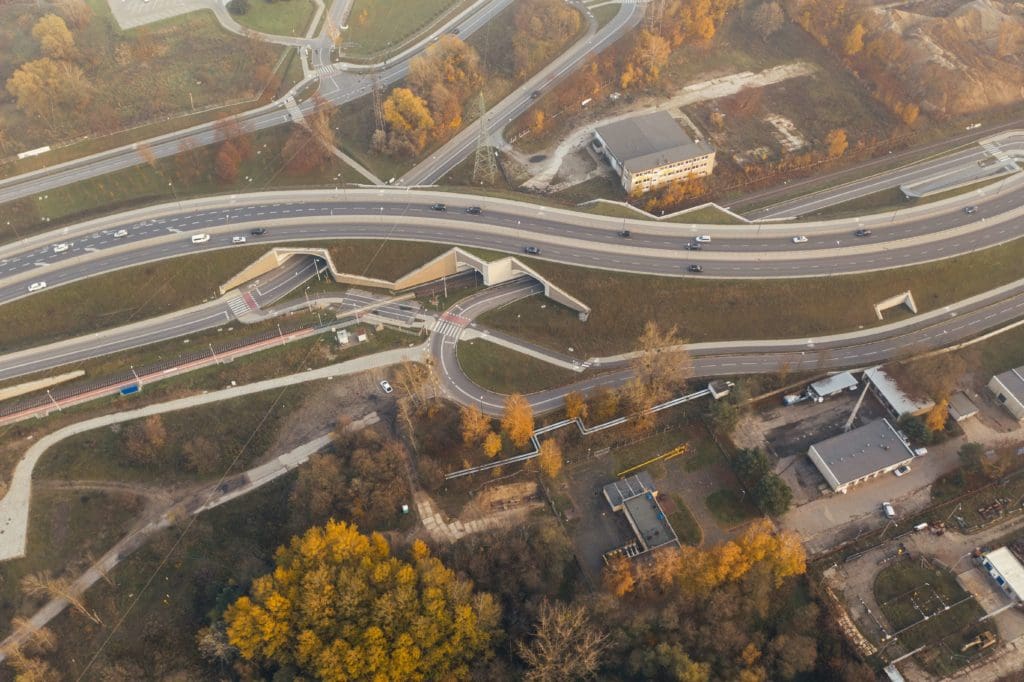How some state DOTs are eyeing these funds for projects that go against the intention of this program.

By Ben Crowther
This year, the U.S. Department of Transportation (USDOT) inaugurated the Reconnecting Communities program, passed by Congress as part of the Bipartisan Infrastructure Law. This first-of-its-kind discretionary grant program is intended to heal the harms caused by highways.
So why are state departments of transportation submitting projects that do little to fix the damage or in some cases even increase it?
That’s right. In the months leading up to the October application deadline, we’ve heard from community advocates that several state DOTs have submitted plans that subvert the program’s intent and are requesting funding for projects that perpetuate or increase the division and damage that highways cause.
On behalf of the Freeway Fighters Network, America Walks, along with 114 other national, state, and local organizations, are asking USDOT to reject highway-oriented, business-as-usual applications and instead select those that are restorative, transformative, community-driven, and provide meaningful benefits to corridor residents.
What are some of the more egregious examples of these highway-oriented Reconnecting Communities applications?
New Orleans:
- Louisiana Department of Transportation and Development has submitted a project for the Claiborne Expressway that spends 63% of its budget on routine maintenance for the highway, which could be paid for by other sources instead of depleting the Reconnecting Communities fund. Nearly a quarter of the funds will go toward studying ramp removal, which would provide community benefits, but LaDOTD has been explicit that this is not a commitment to remove the ramps. The remainder is for improvements under an existing highway. These solutions do little to fix the damage done to the Treme neighborhood’s Black community. LaDOTD has declined to consider a community-driven proposal to dismantle the Claiborne Expressway.
Tulsa:
- Oklahoma Department of Transportation has submitted a project for Interstate 244 through Greenwood that proposes minor aesthetic improvements (widening underpasses and improving lighting) as a serious Reconnecting Communities solution. The removal of the highway, whose construction destroyed Greenwood’s Black Wall Street and still splits North Tulsa and Greenwood, will only be considered in a very long-term context (30+ years). That’s 30 more years that corridor residents will have to live with the ills of the highway. ODOT has refused to work with State Representative Regina Goodwin and the community coalition Transform Tulsa, who see the existing highway as a barrier to rebuilding historic Black Wall Street.
Portland:
- Oregon Department of Transportation (ODOT) has submitted an application to cap two and a half blocks of Interstate 5 as part of its I-5 Rose Quarter Improvement Project. This same project includes plans for a 1.8 mile expansion of the highway in the backyard of Harriet Tubman Middle School. While the proposed cap has the potential to be a positive investment for Portland’s historically Black Albina neighborhood, it comes attached to an expansion of the highway that will increase environmental and economic damage along the corridor.
We’re calling on USDOT to reject proposals like these, as they fail to align with the goals of the Reconnecting Communities program. Proposals like these leave in place the structures that cause damage — or even worse, expand them. For that reason, they address neither environmental justice nor equitable development and result in either a negligible increase in community connectivity or a net decrease, in the case of proposals that bundle highway expansions into the project.
Simply put, we can’t expect to repair damage if we leave in place the structures that cause it — or even worse, if we expand them.
Instead, Secretary Buttigieg and his staff need to look toward projects that are driven and designed by communities who live next to highways. These residents are the people most directly impacted, and they bring to the table the experience of living in a neighborhood severely damaged by a federal infrastructure project that does not benefit them. Their solutions for reconnecting their communities will likely diverge from the standard department of transportation playbook — but that might be just the sort of bold thinking needed to make the program live up to its promise.
Do you know of a Reconnecting Communities project in your city or town? Use the scorecard developed by the Freeway Fighters Network to evaluate whether or not it aligns with the Reconnecting Communities program’s principles.
Are you interested in joining the movement facilitated by the Freeway Fighters Network? Join the list-serv and never miss an update!